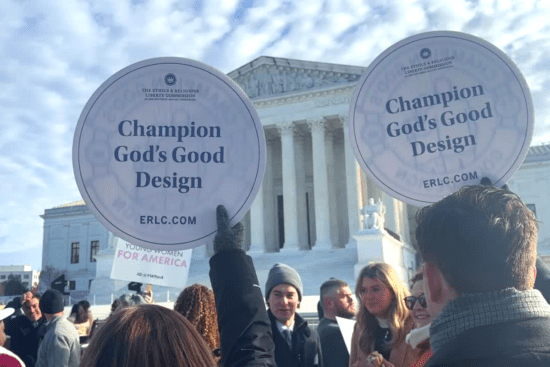Irony is often used in humor, but it finds its most powerful expression in tragedy. News outlets are reporting that Fred Phelps Sr., the founding pastor of the infamous Westboro Baptist, was excommunicated before he passed away on March 19. There’s a sad suitability to the fact that a man who trained others to hate would one day be the object of the impulse he bred. You live by the sword, you die by the sword.
That same tragic irony is what made Javert’s watery death in Les Mis so disturbing. You live by unforgiving law, you die by unforgiving law. And I say this as a Baptist, one who really wants to make a clear distinction between biblical Christianity and the travesty of Westboro theology, which deserves its place at the bottom of the Seine. A great way to do this for those unfamiliar with the contours of conservative Christianity, in fact, is to trace the contrast between Javert and Valjean.
The contrast between Javert and Valjean is not their understanding of the law. And so with Westboro and us—the difference is not whether homosexuality is a sin or not. Conservative churches, including my denomination the Southern Baptist Convention, stand with the historic orthodox understanding of Scripture on this issue: Homosexuality falls outside God’s good design for human sexuality to be expressed only in the marriage of one man and one woman.
The contrast between Javert and Valjean is rather their understanding of how God relates to those who break the law. Javert thought he could please God by conforming to the law. Valjean knew he had no hope of being able to do that. Both men had been gutter-dwellers without much hope. Valjean responded to the injustice and depravity around him by sinking deeper into it. Javert responded by climbing out of it. In other words, Valjean remained evil, and Javert became good.
Until mercy came and made everything all wrong. Mercy makes the evil person good. But it also makes the good person evil.
That second statement is the key to understanding the religious insanity of Westboro. Here’s how the mechanics of mercy work to make good people evil: God demands from people righteousness—flawless righteousness, in fact. Because he is beautifully holy, God must condemn sin, which includes homosexuality (Rom. 1:26-30) as well as many heterosexual sins and sins not involving sex at all (1:28-32). Thus, all people stand equally condemned for their sin. But people who think of themselves as good don’t like to be lumped into that. Javert saw himself as other than the prostitutes and thieves around him. A good person doesn’t have much use for mercy.
White heterosexual men from the Midwest may find it quite offensive to be told that they are as sinful as any homosexual out there. Like Javert condemning the street scum around him, Westboro thinks of themselves as sentinels of righteousness in a dark world. But they fail to recognize the vicious darkness within them.
The gospel says that everyone needs mercy. Jesus told a little parable about this, contrasting a sanctimonious Pharisee with a crooked tax collector (Luke 18:9-14). One thanked God that he was not like other people. The other would not dare even lift his eyes to heaven. Spoiler: It wasn’t the Pharisee who went home righteous. No godhatestaxcollectors.com here.
The whole point of Jesus’ mercy is to show that good people are actually bad, and bad people can be made good. God knows that no one can keep his law. He’s God. He’s perfect. But mercy shows us he did something about it. In the person of Jesus Christ, God himself lived the only righteous human life ever. On the cross, he took the punishment of sin for any who place their faith him.
Only the wicked will seek this mercy. Only those who know their record of debt want it nailed to the cross with Christ. Monsieur Myriel’s grace toward Valjean shamed him because he knew he didn’t deserve it. And, beautifully, this shame provoked Valjean to repent of his sin and seek the forgiveness offered him in the name of Christ. The result was a man who did not condemn prostitutes, but identified with them.
Why should the world care about one conservative-style Baptist trying to distinguish himself from another? It may sound like two cannibals arguing the moral superiority of their butchering method. But this issue goes way beyond one Baptist and another. It’s the difference between a Christianity that offers life to the world and one that celebrates its death. Trust me, you want your neighbors to be the first type of Christian, the kind that identifies with the world even as they proclaim its need for salvation.
We value the moral standards of God because we value God, and if anyone asks us to compromise those, we cannot. But we aren’t compromising his law one bit to be merciful in our approach to others, no matter what kind of sin characterizes their lives. God’s righteousness is proclaimed in his mercy (Rom. 3:21-26). It is one of the most beautiful aspects of who he is.
I pray that, unlike Javert, Phelps found that in the end. Because only the wicked seek mercy.










